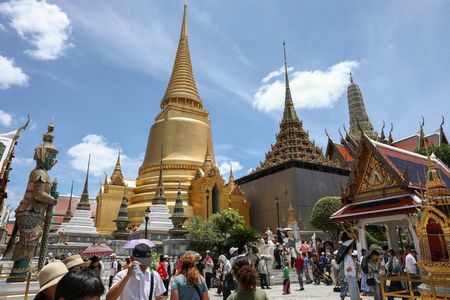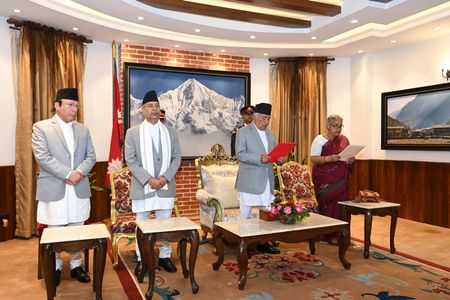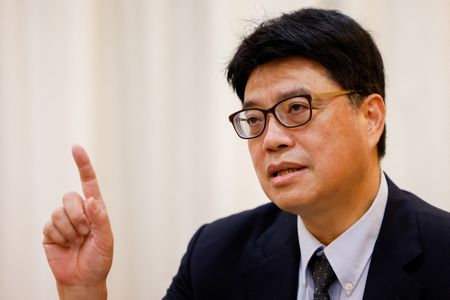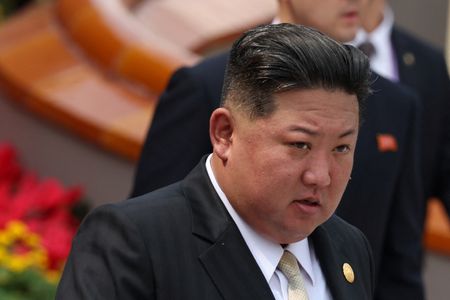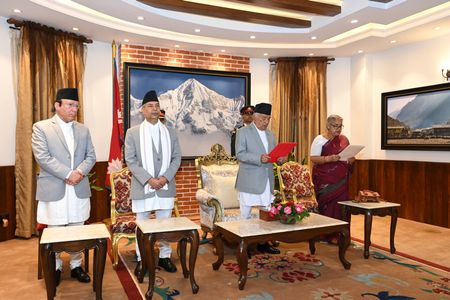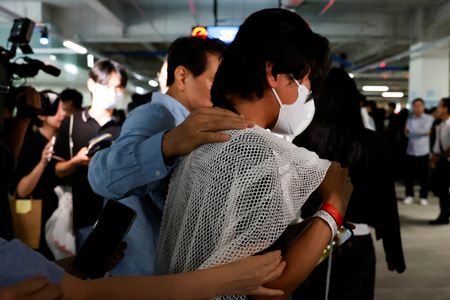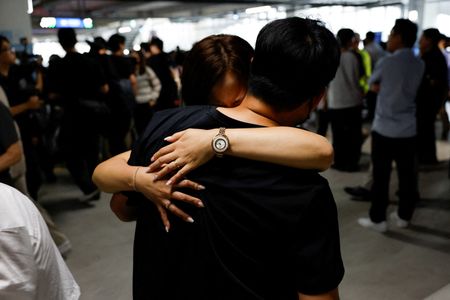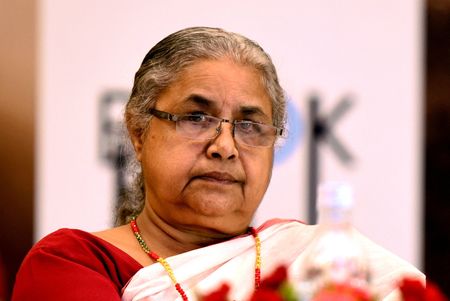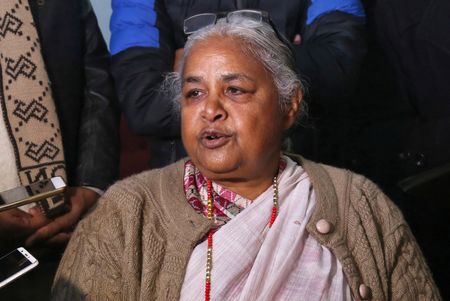By Jonathan Landay and Panu Wongcha-um
BANGKOK (Reuters) -An American scholar remains in Thailand after prosecutors dropped charges against him of insulting the monarchy, his family said, as his legal jeopardy continues in a case that has raised concern in the U.S. government.
Paul Chambers, a lecturer on political science, was arrested last month in a rare case of lese-majeste against a foreigner. He could face up to 15 years in jail, based on a complaint filed by the royalist army.
“He’s not allowed to leave the country, we are not sure exactly why,” his brother Kit Chambers told Reuters. His family in the U.S., including his 85-year-old mother, thought he would be coming home but he remains in legal limbo, his brother said.
Although the state prosecutor dropped its charges two weeks ago, police could still pursue the case, which includes a charge of computer crime.
Chambers, 58, has lost his work visa and job at Naresuan University, and his passport was seized. He denies the charges, has appealed against the revocation of his visa and confiscation of his passport and is contesting his dismissal.
The charges stemmed from a blurb for an online academic seminar at which he was a speaker, said a lawyer for Chambers. The blurb was posted last year on the website of a research institute based outside Thailand.
Thailand’s constitution enshrines the king in a position of “revered worship”, and royalists regard the palace as sacrosanct. One of the world’s strictest lese-majeste laws forbids defaming, insulting or threatening King Maha Vajiralongkorn or his close family.
DIPLOMATIC ISSUE
Chambers’ case could add to Thai-U.S. tensions, as Bangkok seeks relief from President Donald Trump’s tariffs on its exports.
The case has attracted “very senior-level attention” from U.S. officials, Kit Chambers said, declining to identify officials he had been in contact with.
“These senior officials assured me that if this issue is not resolved soon, it could not only impact trade talks with Thailand but it could also impact other aspects of the U.S.-Thai relationship,” he said.
Secretary of State Marco Rubio recently condemned Thailand’s deportation of at least 40 Uyghurs to China, announcing sanctions on some Thai officials.
A spokesperson for the State Department declined to comment on the Chambers case’s impact on bilateral relations but said it was awaiting a decision by police to carry out the prosecutor’s recommendation and swiftly dismiss this case. The department has said the “case reinforces our longstanding concerns about the use of lese-majeste laws in Thailand”.
The U.S. Trade Representative’s Office and the Thai foreign ministry declined to comment. The White House did not respond to a request for comment.
Paul Chambers declined to be interviewed due to the ongoing legal process. Naresuan University declined to comment.
Pavin Chachavalpongpun, a Thai academic at Japan’s Kyoto University and a critic of the Thai monarchy, said Chambers’ case showed the lese-majeste law was “a legal weapon that inflicts punishment by process” and can “paralyse lives”.
“Even though the charges were dropped, the damage is already done – his career has been disrupted, his legal status left in limbo and his ability to move freely effectively revoked,” Pavin said.
A Thai government spokesperson did not immediately respond to a request for comment on Pavin’s assertions.
TABOO DISCUSSION
Police can challenge the prosecutors’ decision to drop the case. If so, Thailand’s attorney general would have the final say, said Yaowalak Anuphan, the head of Chambers’ legal team.
“The criminal case is not completed yet,” she said.
A police officer with knowledge of the matter, who declined to be identified because they were not authorised to speak to the media, said the case was still being considered.
Public discussion of the lese-majeste law has for decades been taboo.
A court last year dissolved the party that won Thailand’s 2023 election over its campaign to amend the law. Since anti-government protests in 2020 that included calls to abolish the law, 281 people have been charged with lese-majeste, according to Thai Lawyers for Human Rights.
Among the 92 cases courts have ruled on since then, 53 ended in jail sentences and 14 had suspended sentences, the group said. Charges were dropped in 18 cases.
All that Chambers’ family wants now is for him to come home as quickly as possible, his brother said.
“Another worry is during this time that he is just in limbo, that more charges – false charges – could be brought against him,” he said. “That would put him right back at square one.”
(Reporting by Jonathan Landay and Andrea Shalal in Washington and Panu Wongcha-um and Panarat Thepgumpanat in Bangkok; Editing by John Mair and William Mallard)

